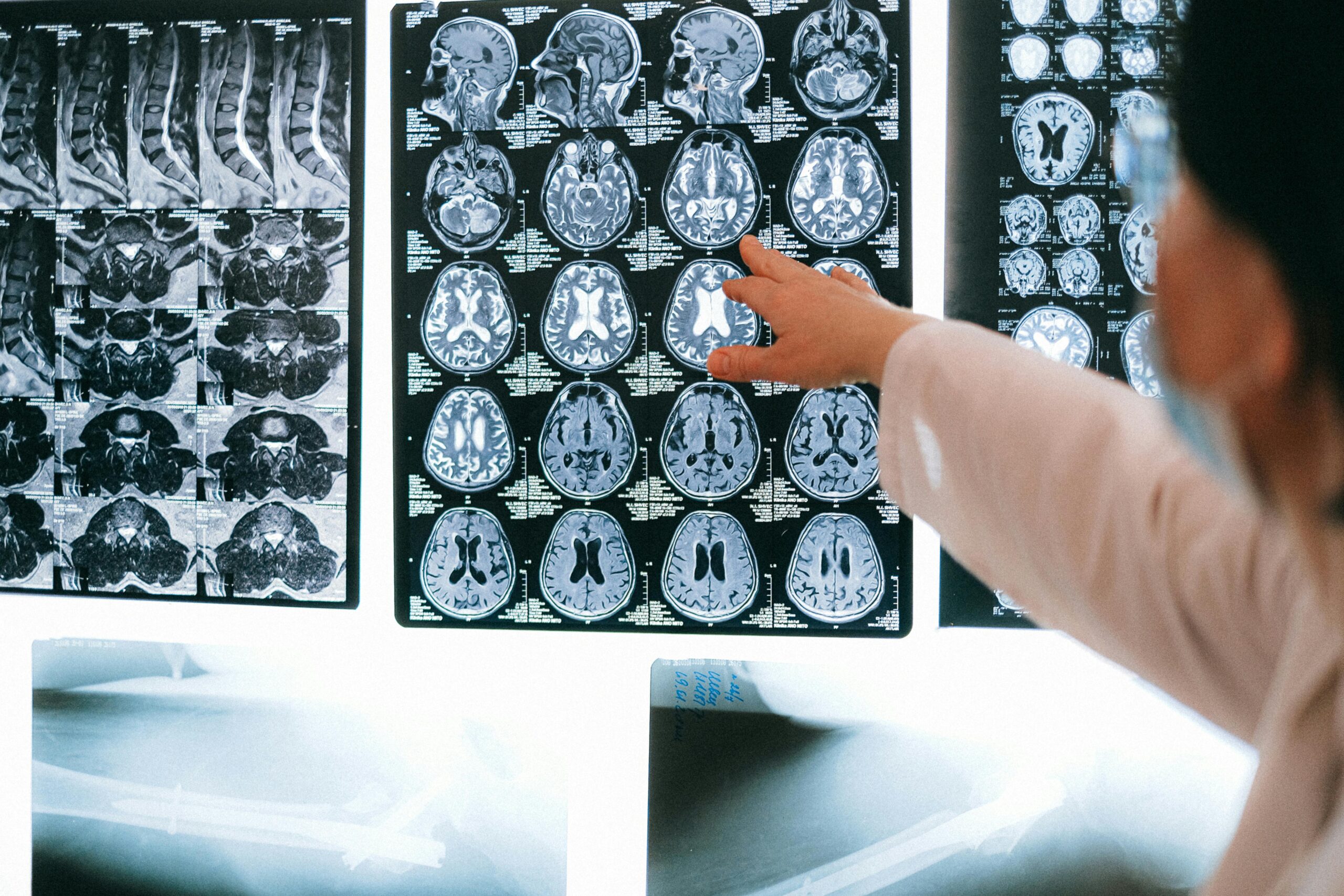Huntington’s disease (HD) is a neurodegenerative brain disorder caused by a mutation that expands the CAG repeat in the huntingtin gene. While HD affects the entire brain, certain areas are more vulnerable, impacting both mental and physical functions. Symptoms typically appear in individuals between the ages of 30 and 50 and tend to worsen over time. There is also a juvenile form of HD, which can manifest in childhood or adolescence and often progresses more rapidly.
HD is hereditary, passed down through families from generation to generation. Each child of an affected parent has a 50% chance of inheriting the mutated gene, which classifies them as “at-risk individuals.”

Huntington’s disease (HD) can have a profound impact on the body and mind. Individuals may experience movement difficulties, such as clumsiness, poor balance, and involuntary movements. As the disease progresses, challenges with speaking and swallowing can arise, which can be frustrating and distressing.
Cognitive functions are also affected, impacting the ability to understand and retain information. Many people with HD find themselves becoming forgetful and may struggle with concentration and decision-making. Additionally, mood changes, including feelings of depression, anger, and irritability, can occur, making daily life more challenging.
It’s important to remember that symptoms can vary significantly from person to person, even among family members. As the disease progresses, these challenges may evolve, presenting new hurdles over time. Unfortunately, HD typically worsens over a span of 10 to 25 years and can ultimately be fatal.
Recognizing these symptoms can help foster understanding and support for those living with HD and their families.
The diagnosis of Huntington’s Disease (HD) involves several steps.
CLINICAL EVALUATION
A doctor, preferably a neurologist specializing in movement disorders, conducts an initial clinical evaluation. This includes reviewing the family medical history, assessing physical and neurological symptoms, and performing a physical examination.
GENETIC TESTING
If there is suspicion of HD and a family history is known, genetic testing is performed at specialized centers. This involves taking a blood sample to look for the presence of the mutation in the huntingtin gene. Genetic tests are necessary to confirm the diagnosis and should be conducted with the support of a genetic counselor to understand the implications of the results. While not mandatory, it is strongly recommended that individuals seek genetic and psychological counseling before deciding to undergo testing, as it can have a significant impact on future life. Therefore, the decision to undergo testing should be well-prepared, and there should be no pressure to proceed.
PSYCHOLOGICAL AND COGNITIVE EVALUATIONS
Psychological assessments and cognitive function tests may be conducted to evaluate the impact of the disease on mental health and cognitive abilities.
BRAIN IMAGING
In some cases, imaging studies such as magnetic resonance imaging (MRI) may be carried out to observe changes in the brain associated with HD.
Currently, there is no known treatment that can stop or cure Huntington’s disease, nor is there any way to prevent it. However, the available medications can help alleviate symptoms, contributing significantly to the well-being of those affected. Additionally, a balanced diet and maintaining good overall health play a crucial role in enhancing quality of life. It’s important for patients and their families to find support to navigate the challenges that come with the disease together.